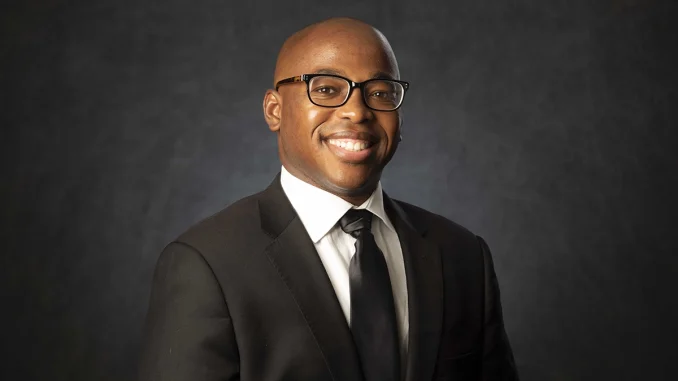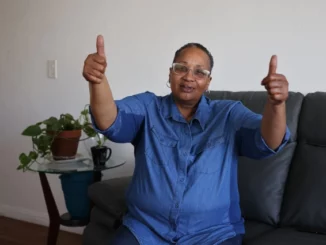
By Staff
In the evolving landscape of American democracy, where questions of equality and justice remain at the forefront, Randall K. Johnson stands as both an advocate and a professor committed to bridging the gap between theory and practice. His scholarship, lived experiences, and ongoing advocacy illuminate how the law can be both a tool of progress and a mirror of society’s deepest challenges. As he steps into his first round of media, Johnson offers a candid reflection on his journey, his civil rights battle, and his vision for a more equitable future.
What inspired you to pursue a career in law teaching, and how has your journey led you to become both an advocate and a professor?
I was inspired by the way that U.S. civil rights advocates, especially during the 1960s, used the law to help Black Americans participate more meaningfully in our almost 250-year-old democracy. And I continue to be inspired by how current activists do the exact same thing using an expanded set of options that include social media, podcasts, and online boycotts.
Who or what influenced your decision to focus on issues of equality and advocacy in your research?
My research and advocacy work looks at how U.S. governments make decisions. Since similarly-situated citizens are supposed to get standard treatment—unless government has a good excuse for not doing so—it made sense to find out if the theory and practice match up.
As this is your first round of media, what do you hope people learn about you and your work?
My goal is for readers to identify ways to make sure that U.S. governments do what they are supposed to, especially in a changing world.
How do you approach balancing the demands of being the plaintiff in an ongoing civil rights lawsuit with the responsibilities of the classroom?
My civil lawsuit against a restaurant chain with a long history of redlining and the government that tried to cover up for it—Minsky’s Pizza and Kansas City (Missouri)—proves the point that a legal education has useful applications. I use my experiences as a plaintiff to inform my lectures, while the insights I gain from teaching complement the great work done by the firm representing me. In addition, I seek out opportunities to engage in public education about the rights and obligations of citizenship in the United States.
What areas of law do you feel are most in need of reform when it comes to equality and justice?
U.S. administrative law—especially in terms of guaranteeing that governments follow the law of public accommodations—is in great need of reform. In Missouri, for example, there can be no expectation that either the City of Kansas City or the Missouri Commission on Human Rights are following the law of public accommodations. My experiences are proof of this fact, as both government agencies upheld the deletion of evidence by Investigator Daniel O’Connor and his entry of judgment against me despite having emails that proved Minsky’s attorney Casey Housley lied. It was only because I filed a state supreme court case, and engaged in advocacy through outreach to elected officials, that my case was reinstated by both agencies.
Can you share an example of a case or advocacy effort that deeply shaped your perspective on justice?
My current lawsuit against the City of Kansas City, Minsky’s, and Daniel O’Connor is a defining example. Before filing, I assumed that Missouri civil rights agencies tried to meet the legal minimum by giving victims of discrimination a chance to be heard. I now know that even this modest definition of justice is too often denied. In order to assure this right to be heard is not denied to anyone else, I realized someone had to take a stand. So, I stood up. And I hope to make it clear that no Missouri restaurant can single out a Black person for abuse, contact that person’s job to force a settlement, and then work with regulators to cover up the discrimination and retaliation.
As a professor, how do you encourage students to think critically about law, justice, and equality?
I encourage my law students to learn individual legal rules and how each rule is applied in one or more contexts. A typical example is when I ask what is required to create a common law contract, which is deceptively complex.
With respect to justice and equality, I ask my students to consider ethical and moral dilemmas: Would it be okay to follow your boss’s directions if you know they will violate the law? What if the direction simply leads to unequal treatment of citizens? If you choose to challenge such a directive, how does one remain employed while doing the right thing?
What role do you believe law schools and professors play in preparing the next generation of advocates for fairness and equity?
Law schools train citizens to understand the legal rights they are given under federal, state, and local laws—rights that carry fairness and equity considerations. An example is when a police officer is polite to White male drivers during a traffic stop but impolite to Black male drivers. Recognizing and addressing those disparities is part of the work.
How do you define equality in the context of the legal system today?
By definition, equality is when similarly-situated people are treated in a relatively standard way. This right is protected by the Fifth and Fourteenth Amendments of the U.S. Constitution, state constitutions, and civil rights laws.
What do you believe are the biggest barriers to true equality under the law?
The single biggest threat is the tremendous discretion U.S. public officials exercise daily. This discretion is often depicted as justice on the ground, but it can be a trap—giving officials an excuse to favor some citizens over others. A better approach involves identifying clear requirements for access to public goods or services and applying those rules consistently.
Advocacy can be demanding—what keeps you motivated and grounded in this work?
I am motivated to narrow the gap between the theory and practice of advocacy. One way is by highlighting areas where there have been successes, another is pointing out where there is room to grow, and a third is focusing on reforms. My legal research and teaching, which can be accessed on Westlaw and Lexis, cover all three options.
What are some misconceptions about the legal profession that you hope to change through your platform?
I hope to show that “the way things are is not the way things have to be.” Also, that rules are good. And lastly, that every citizen has the possibility to “be a star where we are.”
Looking ahead, what is your vision for the kind of impact you want to make in law, education, and society?
My vision is modest. It is for Black people to be treated like everyone else. If successful, then it has implications for law, education, and society.





